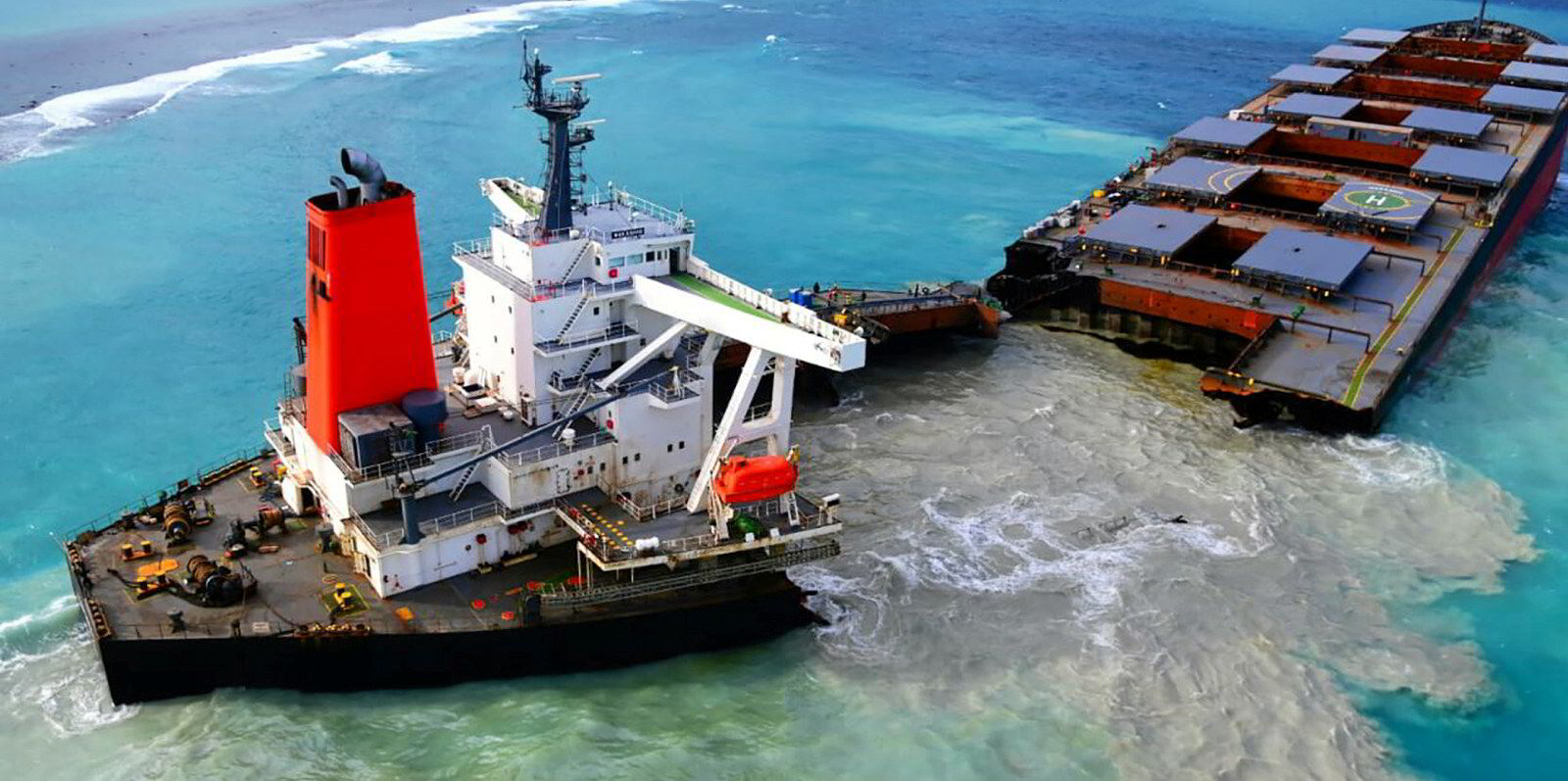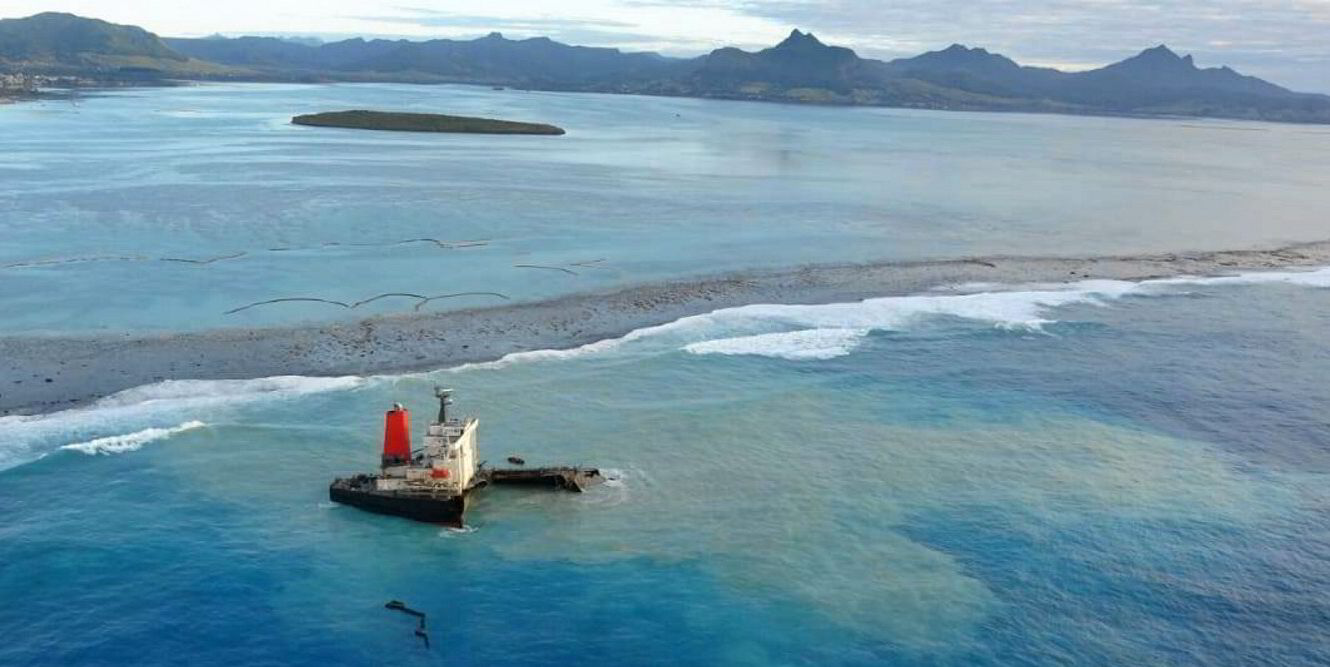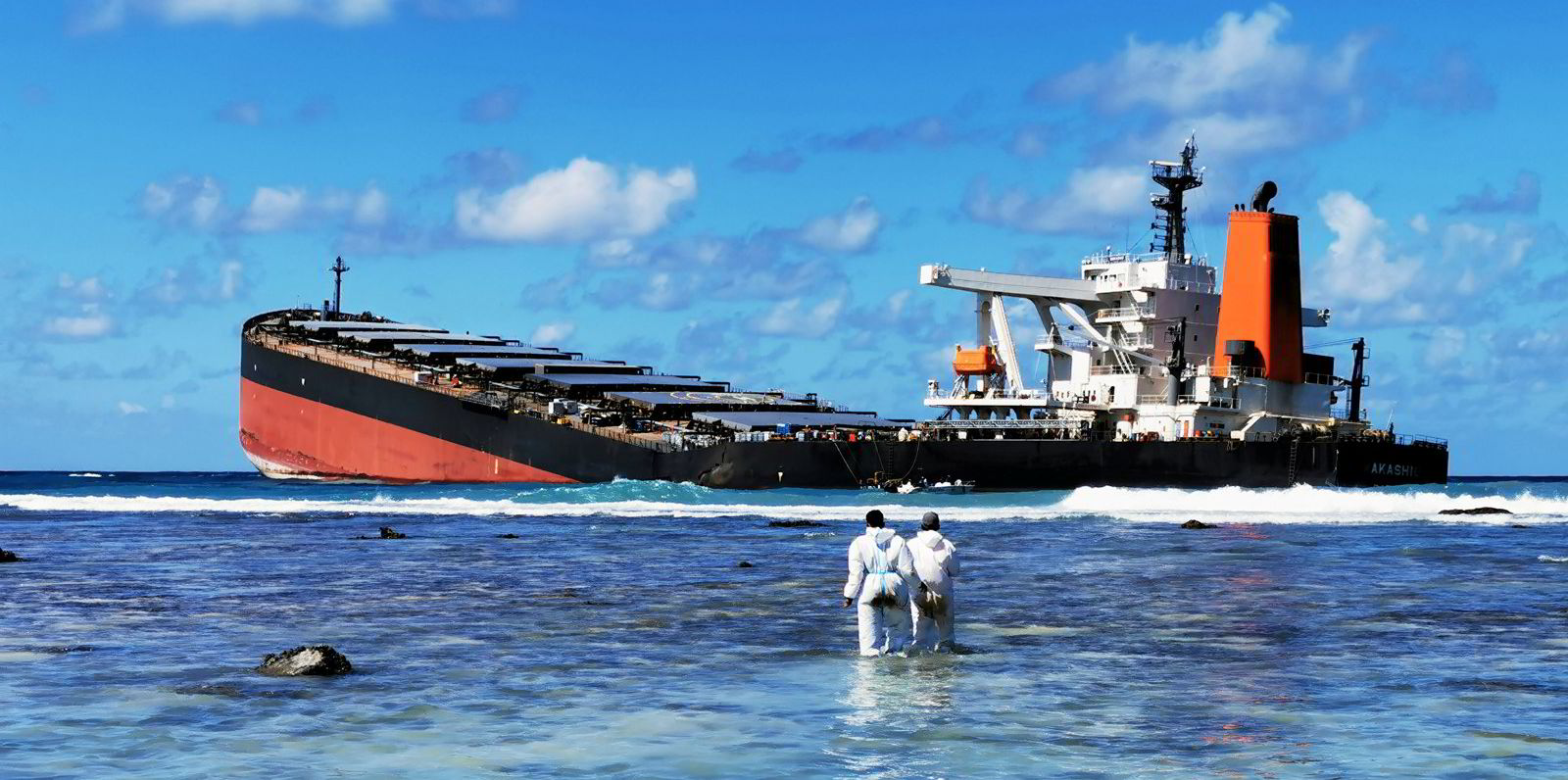Mitsui OSK Lines has rejected media claims that contaminated fuel may have played a part in causing a high profile casualty that saw a bulker run aground and break up off Mauritius.
The Japanese shipping giant, which was charterer of the 203,000-dwt bulk carrier Wakashio (built 2007), rejected suggestions reported in Forbes that the vessel may have suffered mechanical issues prior to the grounding because of its use of low-sulphur fuel.
MOL had previously issued its own preliminary report into the incident suggesting poor navigation, including a decision to divert the vessel to find internet connection, was behind the disaster.
The Tokyo-listed outfit said: “It has been established that no mechanical issues whatsoever were involved in the grounding which appears from early reports to have been solely due to safety and navigational issues.”
The Japanese company went onto say that vessel’s fuel oil met all the required quality criteria, and tests showed it was “fully on specification”.
MOL said that it has no additional information that would cause it to change its analysis of the accident.
“There is absolutely no evidence to suggest that there were problems with the fuel oil or the use of that fuel in the main engine of the Wakashio that could have caused the incident,” MOL said.
Earlier oil major BP, which supplied fuel oil to the Wakashio, also issued a statement rejecting the claim that its fuel oil may have played a role.
BP said its fuel “fully met the specified standard that is recognised across the international bunkering industry”.
MOL pointed out that the findings of the local Mauritius investigation into the accident will become public in the local courts “in due course.”
The Wakashio grounded off the coast of Mauritius in July 2020 spilling 1,000 tons of fuel oil onto its coastline.
The vessel then broke in two, with the forward section floating free. The forward section was scuttled at sea and the stern section is the subject of an ongoing wreck removal operation.






